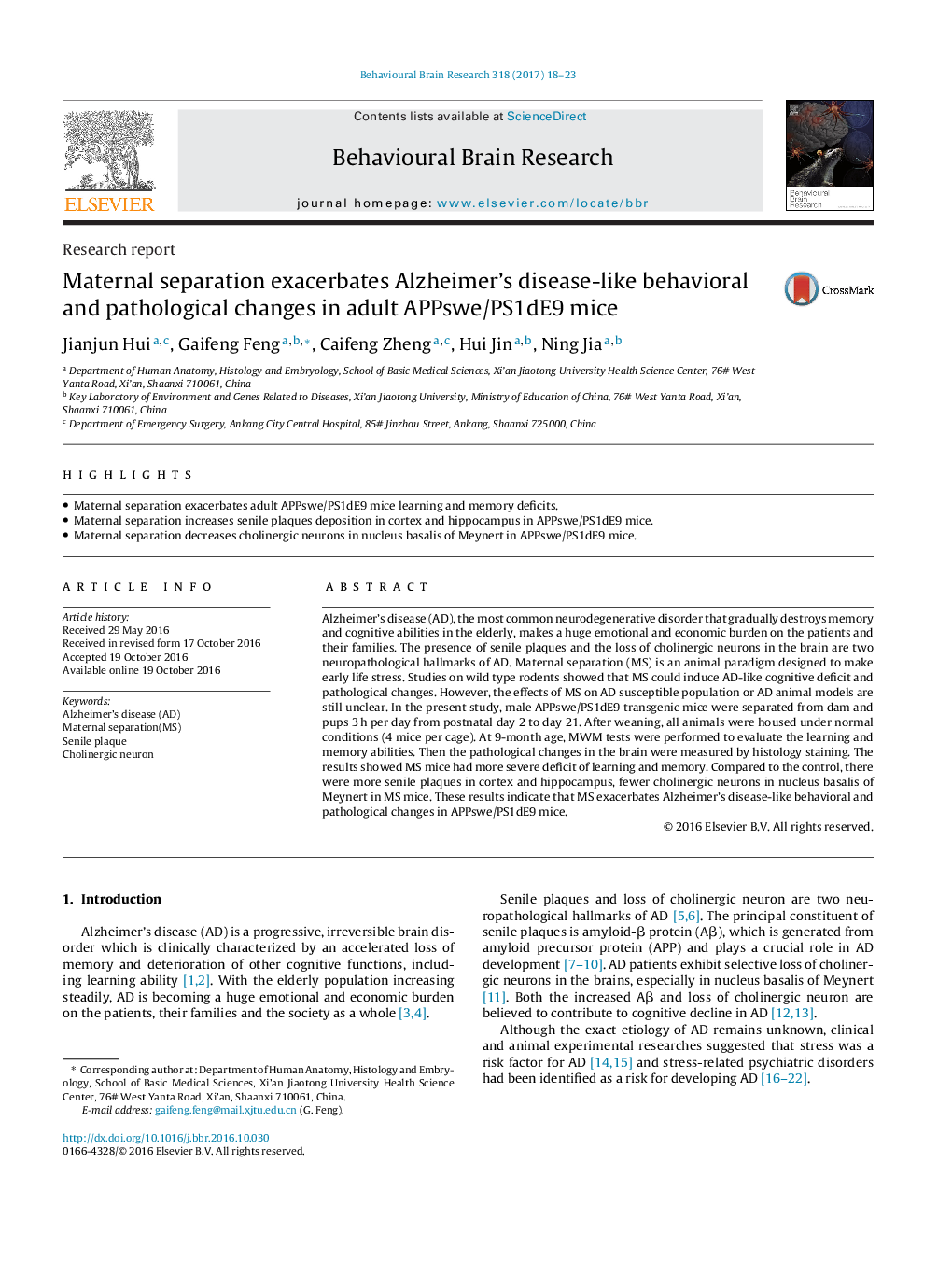| Article ID | Journal | Published Year | Pages | File Type |
|---|---|---|---|---|
| 5735574 | Behavioural Brain Research | 2017 | 6 Pages |
Abstract
Alzheimer's disease (AD), the most common neurodegenerative disorder that gradually destroys memory and cognitive abilities in the elderly, makes a huge emotional and economic burden on the patients and their families. The presence of senile plaques and the loss of cholinergic neurons in the brain are two neuropathological hallmarks of AD. Maternal separation (MS) is an animal paradigm designed to make early life stress. Studies on wild type rodents showed that MS could induce AD-like cognitive deficit and pathological changes. However, the effects of MS on AD susceptible population or AD animal models are still unclear. In the present study, male APPswe/PS1dE9 transgenic mice were separated from dam and pups 3Â h per day from postnatal day 2 to day 21. After weaning, all animals were housed under normal conditions (4 mice per cage). At 9-month age, MWM tests were performed to evaluate the learning and memory abilities. Then the pathological changes in the brain were measured by histology staining. The results showed MS mice had more severe deficit of learning and memory. Compared to the control, there were more senile plaques in cortex and hippocampus, fewer cholinergic neurons in nucleus basalis of Meynert in MS mice. These results indicate that MS exacerbates Alzheimer's disease-like behavioral and pathological changes in APPswe/PS1dE9 mice.
Related Topics
Life Sciences
Neuroscience
Behavioral Neuroscience
Authors
Jianjun Hui, Gaifeng Feng, Caifeng Zheng, Hui Jin, Ning Jia,
